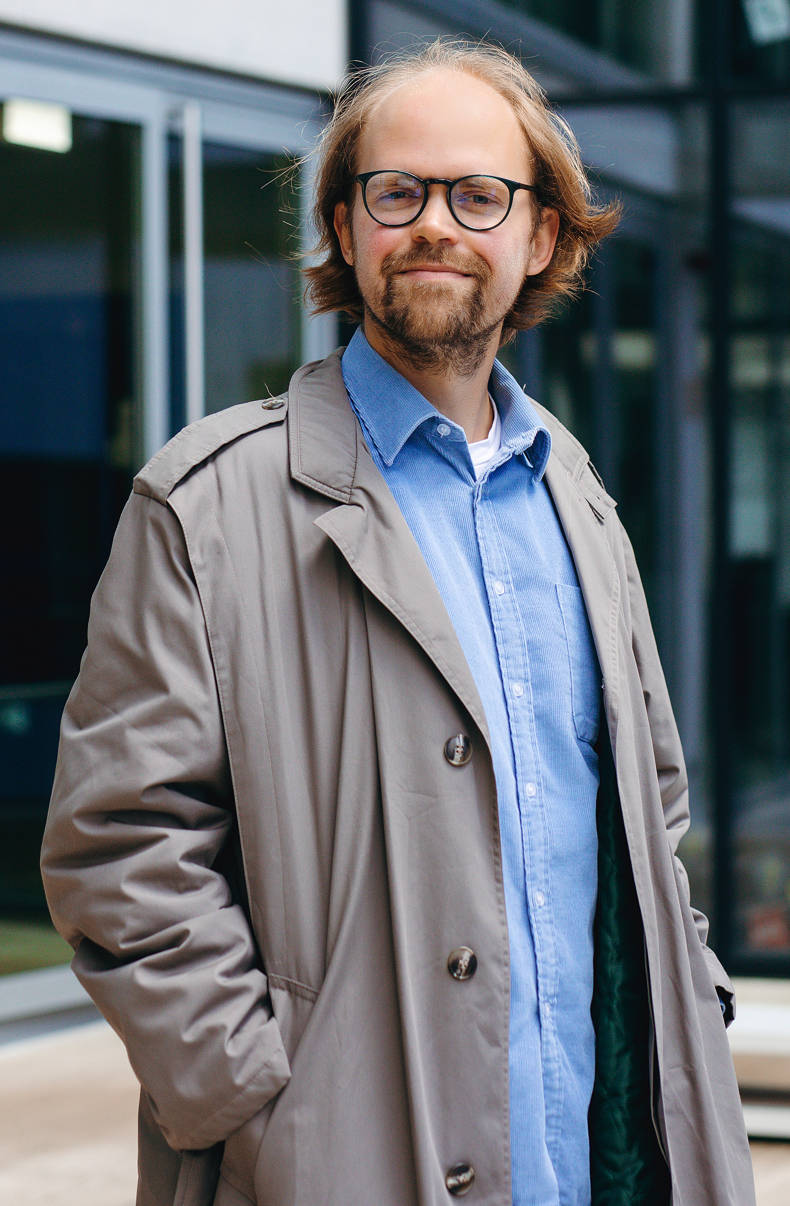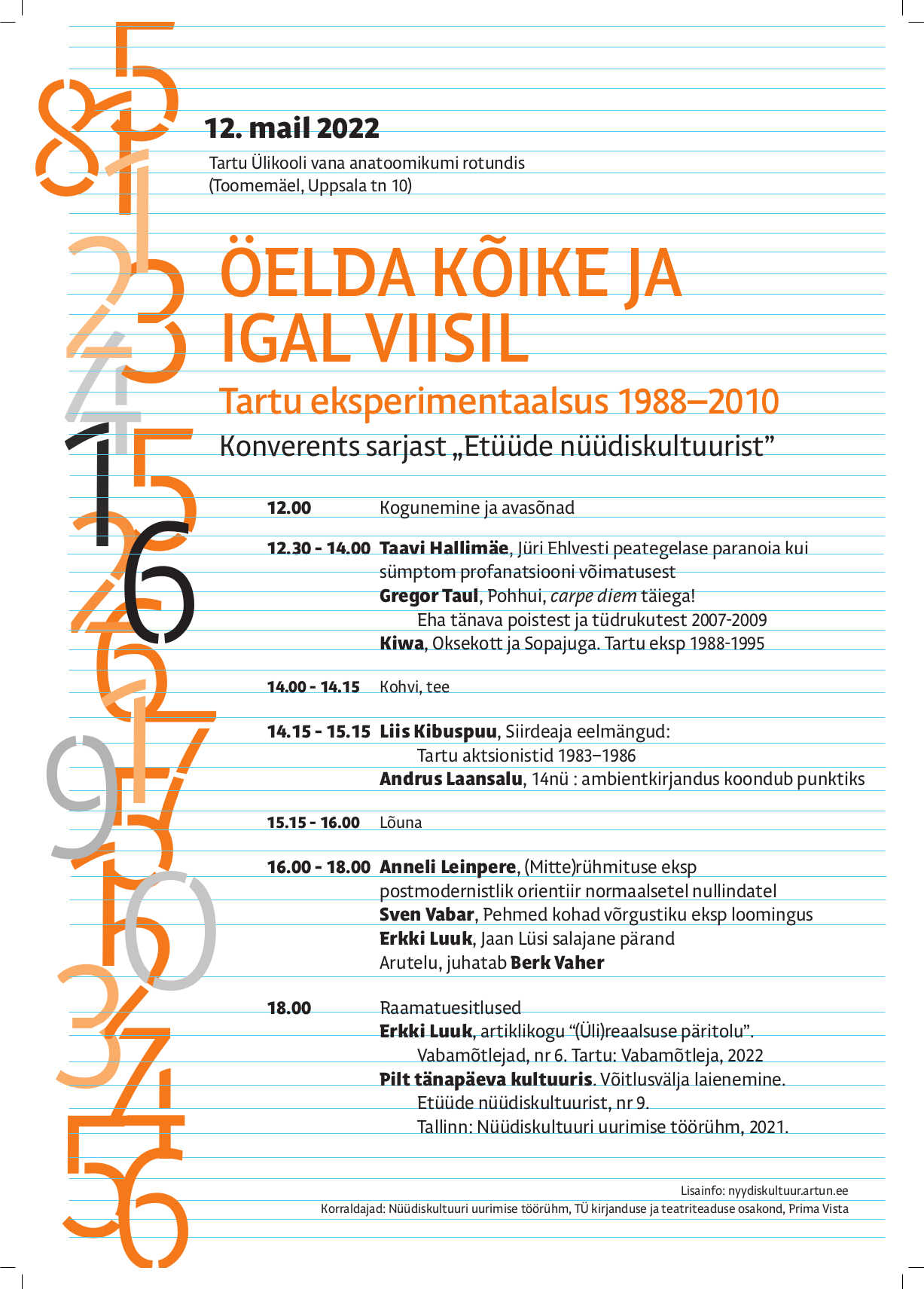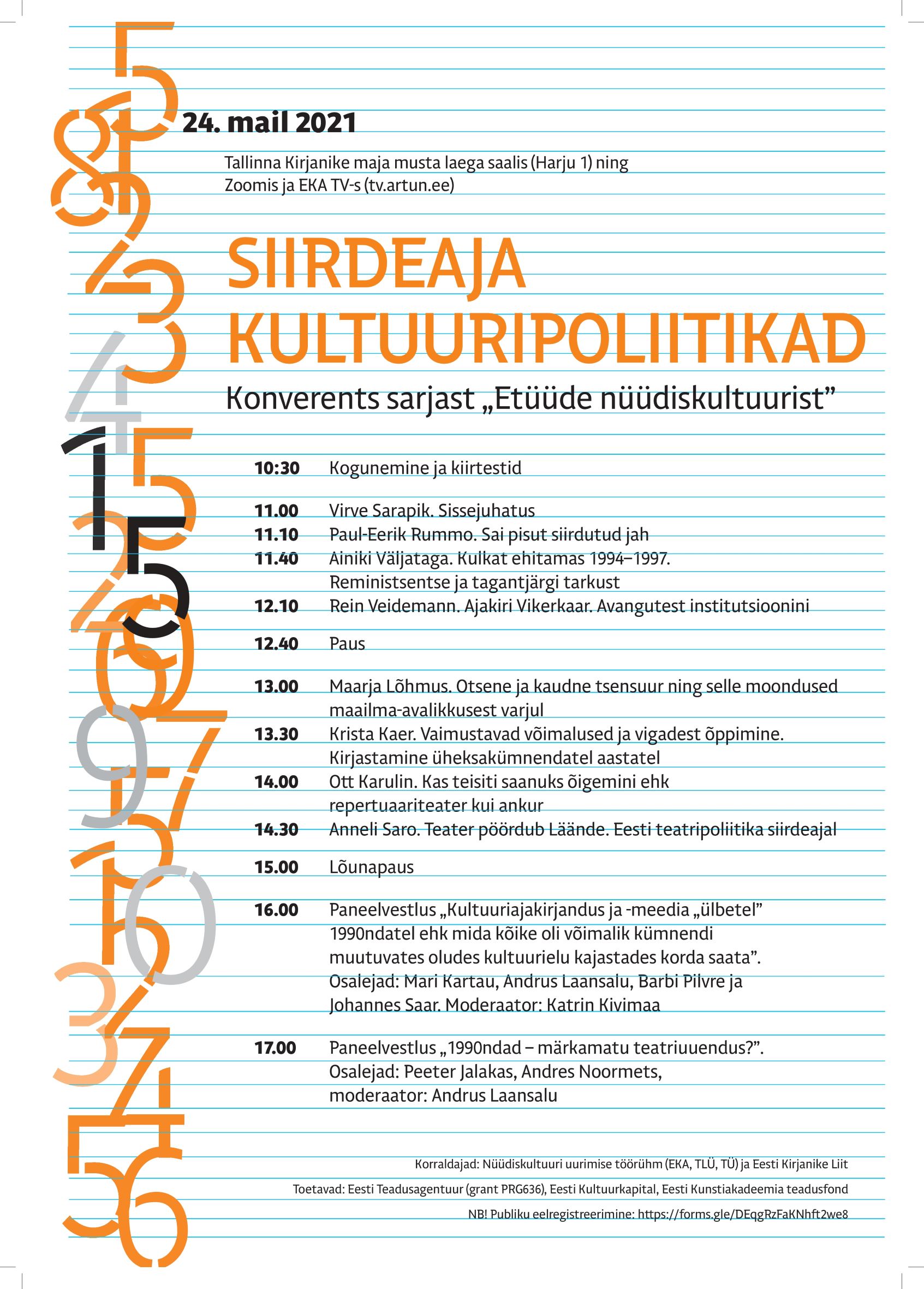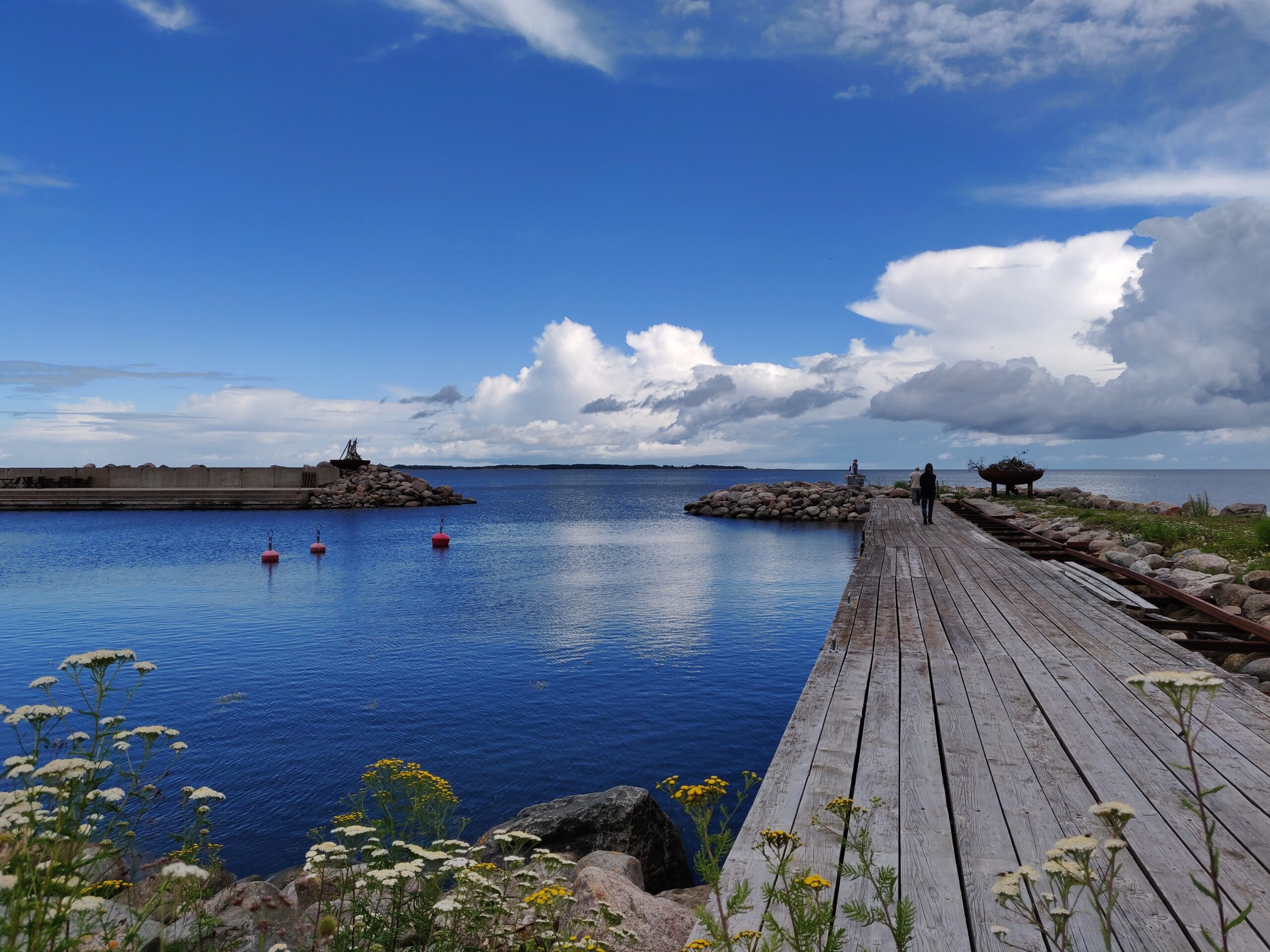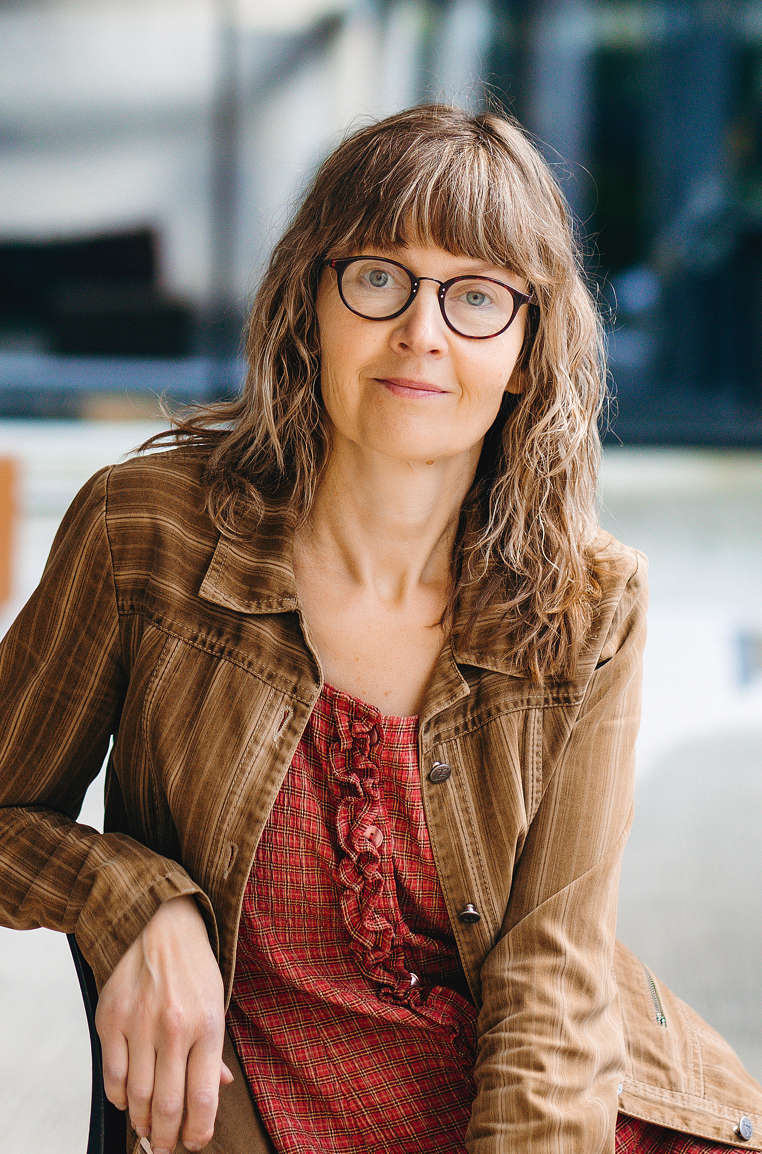Siirdeperioodide sotsiopoliitiline määramatus on olnud viljakas keskkond erinevat liiki eksperimentaalse loomingu esilekerkimiseks. Me näeme seda esiteks 1910. ja 1920. aastatel ja teiseks 1960. aastatel nii Eestis kui Euroopas, Venemaal ja mujal. Vähemalt Eestis ja mujal Ida-Euroopas ei olnud erandiks ka 1980. aastate lõpu ja 1990. aastate murranguperiood, kui nii kunstis kui kirjanduses ammutas uus põlvkond inspiratsiooni varasemate siirdeaegade eksperimentaalsest loomingust ning otsis ka uusi väljendusvahendeid. Uue loomingulise hingamise said ka vanemate põlvkondade avangardistid, kes vahepealsel ajal ei olnud loominguliselt aktiivsed või teostasid end traditsioonilisemates ja turvalisemates formaatides. See taasiseseisvumise ajal hoo sisse saanud eksperimentaalse loomingu laine jätkus veel ka 2000. aastatel ning hääbus 2010. aastate algul.
Iseäranis produktiivseks eksperimentalistika-keskuseks kujunes Tartu linn, mis oli selles osas Tallinnaga nii kvanti- kui kvalitatiivselt vähemalt võrdväärne. Tartus asutati näiteks uus-sürrealistlik kunstirühmitus Para ’89. 1992-1999 toimusid seal rahvusvahelised kunstifestivalid Dionysia. Siirdeperioodi eesti kirjanduse üks olulisemaid nähtusi oli rühmitus Hirohall (1988-1991), kuhu kuulusid Kivisildnik, K. M. Sinijärv, Kauksi Ülle, Valeria Ränik ja Jüri Ehlvest. Hirohalliga oli seotud ka 1989. aastal asutatud Eesti Kostabi-$elts ja kaudsemalt 1991-1993 ilmunud kultuurileht Kostabi. Kirjandusliku eksperimentaalsuse teine laine kerkis esile 1990. aastate lõpus, rühmituste Erakkond ja Tartu NAK mitme autori näol. Teatri vallast võib peamise näitena tuua Tartu Teatrilabori (2000-2003). Tartu eksperimentaalse hoo lõpuosas domineeris interdistsiplinaarne rühmitus eksp, mis tegutses aktiivselt aastatel 2006-2010, ent mille mitmed liikmed (Erkki Luuk, Kiwa, Martiini) võrsusid loojatena just siirdeperioodist. Nende tuntumate näidete kõrval ja vahel on veel hulk vähemorganiseerunud seltskondi ja ka üksikautoreid, kes seltskondadest pole eriti hoolinud, näiteks Valdur Mikita.
Et Tartu eksperimentaalsus pole just varjusurmas, tõestab muu hulgas Jaan Malini ning aastast 2019 Siim Lille veetud festival Hullunud Tartu, kunstnik Kiwa 2014. aastal asutatud ja praeguseni tegutsev kirjastus ;paranoia ning mõned muudki sündmused ja tegutsejad. Teisest küljest võib ent täheldada tendentsi, mille järgi kunagised eksperimentalistid on end teostanud märksa konservatiivsemas vormis või ka sisus (Valdur Mikita, Paavo Matsin)
Meile tundub seega, et aeg on küps teha tagasivaade tollele vabaduseajale Tartus. Sellega seoses korraldab Nüüdiskultuuri uurimise töörühm sarja “Etüüde nüüdiskultuurist” kuuluva konverentsi neljapäeval, 12. mail Tartus, Prima Vista kirjandusfestivali ajal Tartu Ülikooli vana anatoomikumi rotundis.
_____
* Jacques Derrida, “Acts of Literature”, Routledge, 1992: 36. “Lääne kirjandus oma üsnagi uusaegses vormis seostub õigusega öelda kõike ning seostub kahtlemata ka tänapäevase demokraatia idee tekkega. Ta ei sõltu kehtivast demokraatiast ega ole minu jaoks lahutatav sellest, mis üldse sünnitab demokraatia – selle kõige laiemas (ja kahtlemata alles saabuvas) tähenduses.” (Samas: 37.)
Teesid (pdf)
Konverentsi kava:
12.00
Kogunemine ja avasõnad (mp3)
12.30 – 14.00
Taavi Hallimäe, Jüri Ehlvesti peategelase paranoia kui sümptom profanatsiooni võimatusest (mp3)
Gregor Taul, Pohhui, carpe diem täiega! Eha tänava poistest ja tüdrukutest 2007-2009 (mp3)
Kiwa, Oksekott ja Sopajuga. Tartu eksp 1988-1995 (mp3)
14.00 – 14.15 Kohvi, tee
14.15 – 15.15
Liis Kibuspuu, Siirdeaja eelmängud: Tartu aktsionistid 1983–1986 (mp3)
Andrus Laansalu, 14nü : ambientkirjandus koondub punktiks (mp3)
15.15 – 16.00
Lõuna
16.00 – 18.00
Anneli Leinpere, (Mitte)rühmituse eksp postmodernistlik orientiir normaalsetel nullindatel (mp3)
Sven Vabar, Pehmed kohad võrgustiku eksp loomingus (mp3)
Erkki Luuk, Jaan Lüsi salajane pärand (mp3)
Arutelu, juhatab Berk Vaher (mp3)
18.00
Raamatuesitlused:
Erkki Luuk, artiklikogu “(Üli)reaalsuse päritolu”. Vabamõtlejad, nr 6. Tartu: Vabamõtleja, 2022
Pilt tänapäeva kultuuris. Võitlusvälja laienemine. Etüüde nüüdiskultuurist, nr 9. Tallinn: Nüüdiskultuuri uurimise töörühm, 2021.
Ülekanne Zoomis: https://ut-ee.zoom.us/j/98063117895?pwd=L0d3Ly9teW44UGw0cjJ4aytmSmFEdz09
Korraldajad: Nüüdiskultuuri uurimise töörühm, TÜ kirjanduse ja teatriteaduse osakond, Prima Vista
